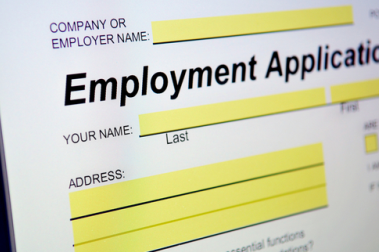
A credit report is like a report card that provides lenders insight into how you use credit.
If you’re paying debts on time and keeping debts low on credit accounts, you’re building a great credit history that will help you earn lower interest rates on loans and will help you in a variety of other ways, too.
There are many myths going around about what hurts or improves your credit scores.
Here is a list of seven popular myths about credit scores and credit reports you should know about:
Myth #1: Checking your personal credit report will hurt your credit score.
 Fact: Reviewing your own credit report results in what is called a “soft pull,” or “soft inquiry,” meaning it will only be seen on a personal credit report. And this has no impact on your scores. Everyone should check their reports at least annually. It’s part of good credit management and completely free from AnnualCreditReport.com.
Fact: Reviewing your own credit report results in what is called a “soft pull,” or “soft inquiry,” meaning it will only be seen on a personal credit report. And this has no impact on your scores. Everyone should check their reports at least annually. It’s part of good credit management and completely free from AnnualCreditReport.com.
However, when you apply for credit, a lender will pull and review your credit report, and a “hard inquiry” will be added to your report. Hard inquiries are shown to other lenders because they may represent new debt that doesn’t yet show on a credit report as an account. Hard inquiries can affect credit scores.
Myth #2: There is only one credit score that all lenders use.
 FACT: There are many different credit scoring models used by lenders in the marketplace today. And different models have different score ranges. Generic scores may be used by many types of lenders and businesses to determine general credit risk. The three national credit reporting agencies — Experian, Equifax and TransUnion — worked together to develop VantageScore®, a new generic credit score that uses the same formula for credit information from all three bureaus.
FACT: There are many different credit scoring models used by lenders in the marketplace today. And different models have different score ranges. Generic scores may be used by many types of lenders and businesses to determine general credit risk. The three national credit reporting agencies — Experian, Equifax and TransUnion — worked together to develop VantageScore®, a new generic credit score that uses the same formula for credit information from all three bureaus.
To make it easier for people to understand, a letter grade is associated with the number ranges for the VantageScore. A grade of “C” is considered good, but, of course, an “A” should be your goal. Custom credit scores are developed by many different companies to predict risk for specific types of lending or for individual businesses, such as auto loans or retail debt.
Myth #3: Paying cash for everything can help your credit score.
 FACT: Using credit accounts is the only way to help you establish and build credit.
FACT: Using credit accounts is the only way to help you establish and build credit.
Using cash or debit cards, which are like electronic checks, for everything isn’t better than using credit because you aren’t building your credit references.
In order to qualify for the best rates when you want to buy a car, or house, or apply for a student loan, you need to have demonstrated that you can manage credit responsibly.
The best way to build a positive history is to use credit cards for purchases that you can pay in full each month and be sure that you make all loan and rent payments as agreed. Over time that positive history will produce the best scores and ensure that you are offered the best terms when you apply for new services, including cell phones and utilities.
Myth #4: The best way to improve credit scores is to pay off all accounts and close them.
 FACT: Paying off all debts can be one of the fastest ways to improve credit scores. Closing accounts, though, can hurt credit scores. One of the most important elements in credit scores is the proportion of total balances to the total credit limits. Paying off debts lowers that proportion, improving credit scores.
FACT: Paying off all debts can be one of the fastest ways to improve credit scores. Closing accounts, though, can hurt credit scores. One of the most important elements in credit scores is the proportion of total balances to the total credit limits. Paying off debts lowers that proportion, improving credit scores.
However, closing accounts eliminates some of the available credit limits, making the balances appear to be higher compared to the overall limits. For example, a person who has $15,000 of credit available on multiple credit cards but only has a balance of $5,000 is only using 30 percent of available credit, which is good. However, if the person closes a $5,000 credit account because the credit card is not being used, the available credit amount drops to $10,000 and results in 50 percent of available credit being used — a level that can knock points off of that person’s credit score.
Myth #5: Great credit is tied to how much money and assets a person has.
 FACT: Credit reports don’t list bank account balances or assets, so those numbers don’t impact credit scores.
FACT: Credit reports don’t list bank account balances or assets, so those numbers don’t impact credit scores.
Information about income, investments or assets such as stocks or bonds will also not be in a credit report. Likewise, there is no information about savings accounts, certificates of deposit or other non-debt banking relationships.
A bank account does, however, may affect credit scores if a consumer bounces checks and does not pay the money back.
If the balance owed to the bank gets turned over to a collection agency, then that information will show up on a credit report.
Most importantly, having savings and investments can be a critical factor in protecting your good credit if you have a financial emergency and can’t make all of your payments from your monthly income.
Myth #6: Academic background and degree level can affect your credit score.
 FACT: Education level is not part of a credit report, so it has no bearing on credit scores. Information in credit reports pertains only to debt-related information. Therefore, loans, credit cards and payment history will be reported, as well as bankruptcy, tax liens (debt owed to the government) and civil judgments (debt owed through the courts).
FACT: Education level is not part of a credit report, so it has no bearing on credit scores. Information in credit reports pertains only to debt-related information. Therefore, loans, credit cards and payment history will be reported, as well as bankruptcy, tax liens (debt owed to the government) and civil judgments (debt owed through the courts).
Information about income, investments or assets such as stocks or bonds will also not be in a credit report. Likewise, there is no information about savings accounts, checking accounts, certificates of deposit or other non-debt banking relationships. Additionally, under the Equal Credit Opportunity Act, a creditor’s scoring system may not use race, gender, marital status, national origin or religion as factors.
Myth #7: Poor credit can’t prevent you from getting hired.
 FACT: Federal law allows potential and current employers to view a modified version of a candidate’s credit report for employment purposes, such as hiring and promoting, but the decision to include a credit check is left up to the individual employer.
FACT: Federal law allows potential and current employers to view a modified version of a candidate’s credit report for employment purposes, such as hiring and promoting, but the decision to include a credit check is left up to the individual employer.
In certain industries, knowing that a candidate has a sound credit history is a very important part of the hiring and screening process and can help in preventing application fraud. Credit reports used for employment purposes are reviewed manually and never scored. There is also a requirement to obtain written permission before accessing a credit report for this purpose. So, you will never be surprised and will have the opportunity to explain any issues reflected in your credit references.
Have you heard of other credit score myths? Or curious about other factors that might hurt your credit? Let us know in the comments.
Recommended Reading
- 5 Ways to Rebuild Your Credit Score
- 20 Common Credit Myths You Should Know About
- Why Credit Scores Change With Little Account Activity
- Checking Your Own Credit Report Will Not Hurt Your Credit Scores
- The Credit Impact of Missing One Mortgage Payment
>> Subscribe to the Experian Blog by Email for More Credit Tips
Photos: Shutterstock